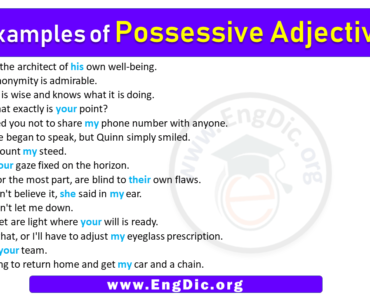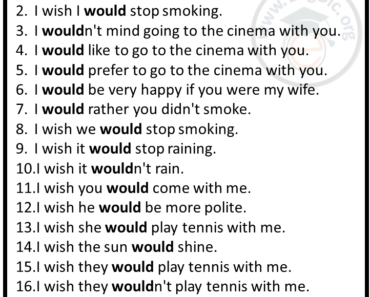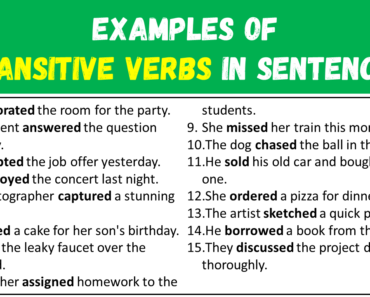5 Examples of Qualitative Adjectives in Sentences! Qualitative adjectives are an important part of language, as they provide a more detailed description of a noun than a simple adjective can. In this article, we will explore five examples of qualitative adjectives and their corresponding examples. We will look at why they are used and how to determine if an adjective is qualitative or not. Additionally, we will look at how these words can be used to make sentences more vivid and descriptive.
Related: 100 Examples of Qualitative Adjectives
5 Examples of Qualitative Adjectives in Sentences
1. Mysterious
Mysterious is an adjective used to describe something hard to understand, explain, or interpret. It usually refers to something enigmatic, obscure, or puzzling.
Example sentence: The old mansion on the hill had a mysterious aura that made everyone curious about what secrets it held.
2. Enchanting
Enchanting is an adjective used to describe something that has a charming, captivating, or magical quality to it. It usually refers to something attractive, delightful, or spellbinding.
Example sentence: The enchanting music of the violinist filled the room with a sense of peace and tranquility.
3. Majestic
Majestic is an adjective used to describe something grand, magnificent, or impressive. It usually refers to something noble, awe-inspiring, or regal.
Example sentence: The majestic mountains rose high above the clouds, creating a breathtaking view.
4. Melancholic
Melancholic is an adjective used to describe something sad, gloomy, or mournful. It usually refers to something melancholy, wistful, or pensive.
Example sentence: The melancholic tune of the song reminded him of the happy memories he had lost.
5. Serene
Serene is an adjective used to describe something calm, peaceful, or tranquil. It usually refers to something serene, placid, or tranquil.
Example sentence: The serene beauty of the sunset over the sea left her feeling content and at peace.
How To Determine If An Adjective Is Qualitative Or Not?
Adjectives are words that modify or describe nouns or pronouns. Qualitative adjectives are a type of adjective that describe the qualities or characteristics of a person, object, or thing. Here are some tips on how to determine if an adjective is qualitative or not:
- Look for descriptions of physical, sensory, or emotional qualities: Qualitative adjectives typically describe physical characteristics such as size, shape, color, or texture, or sensory qualities such as taste, smell, sound, or touch, or emotional qualities such as happy, sad, angry, or scared.
- Check for comparative or superlative forms: Qualitative adjectives often have comparative or superlative forms that indicate degrees of comparison, such as “taller,” “brighter,” “happier,” or “prettiest.”
- Consider the context: Adjectives are often used in specific contexts, and some adjectives may be qualitative in one context and not in another. For example, “hard” could be used to describe a physical quality (“the rock was hard”), or it could be used to describe a difficulty (“the exam was hard”).
Overall, if an adjective is describing a quality, characteristic, or attribute of a person, object, or thing, it is likely a qualitative adjective.






